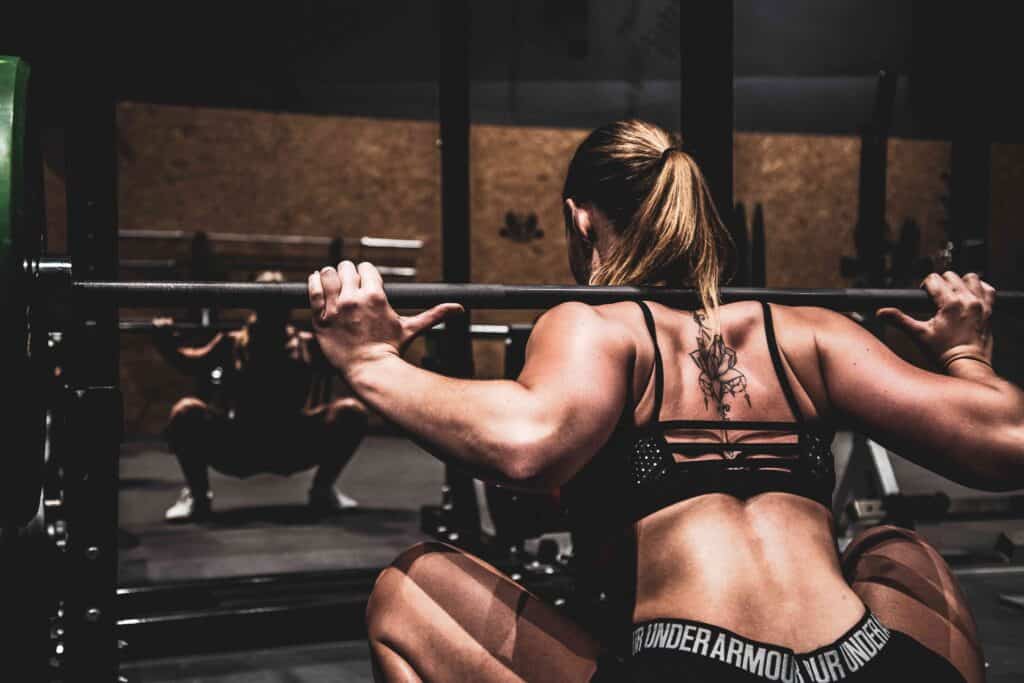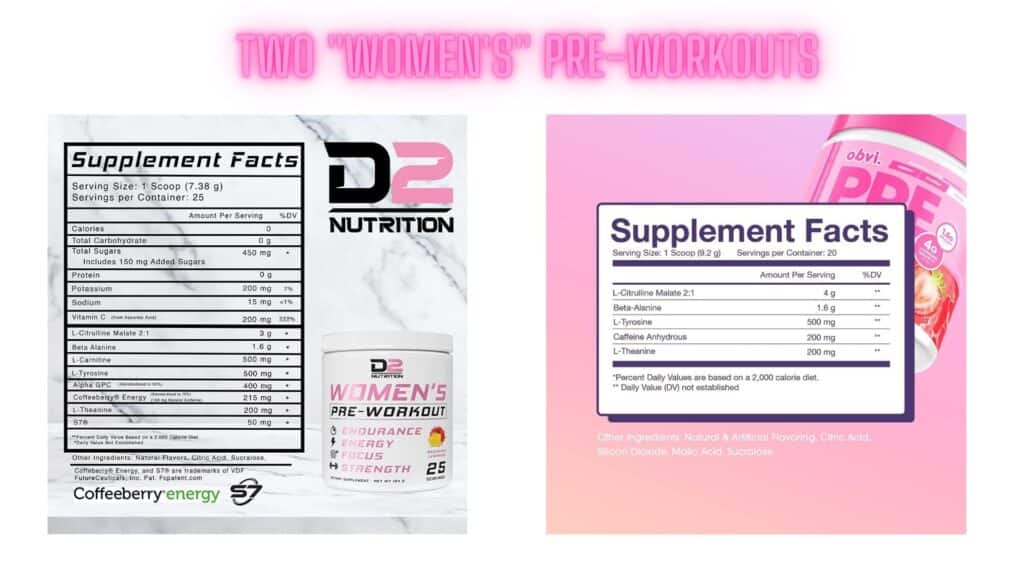
There’s a growing contingent of supplements made exclusively for women. In some cases, it makes sense, as women have a completely different hormonal profile than men. But in other cases, it is strictly marketing tactics without the supplement science to back it up.
There’s a common misconception that women need pre-workouts made specifically for them, but the truth is, women can take 90-95% of pre-workouts made for men.
The difference between a men’s and women’s pre-workout supplement often comes down to the way the product is marketed. Oftentimes a women’s pre-workout simply has brighter colors, different font choices, and the word “women” plastered on the label somewhere. The actual components of the pre-workout don’t differ much at all.
Ingredients in Pre-Workouts for Women
Most pre-workouts made for men and women share the same key ingredients. These include caffeine, beta-alanine, citrulline, and creatine among others. These are the fundamental ingredients in any pre-workout. You’d be hard-pressed to find one that doesn’t have at least one of them in its formulation.
Beyond that are ingredients for focus, endurance, and fatigue management. Even then, not only would a woman be fine taking it, then would likely find the effects beneficial for their workouts.
Nowadays women train just as hard as men, if not harder. They aspire to grow muscle, compared to past times when they may have feared it. No longer are they fearful of looking “bulky”, as those myths have been laid to rest.
As a result, women want the same ergogenic effects from a pre-workout to increase their training intensity in the gym.

In most cases, there’s no need to buy a pre-workout made exclusively for women. As we mentioned, the majority of pre-workout ingredients apply to both men and women.
But what about the 5-10% that don’t? It’s true that some pre-workouts made for men contain ingredients that are tailored towards testosterone-boosting, which women don’t necessarily want. However, these ingredients are relatively rare and may lack the research that support their testosterone boosting effects anyway.
In addition, these products are pretty easy to identify. If they claim to boost testosterone then they will likely boast about it on the label. Ingredients that may increase testosterone that potentially could be found in a pre-workout include D-aspartic acid, Boron and Tribulus. Again, the research on these testosterone boosting effects is dubious anyway.
Men’s and Women’s Pre-Workout Comparison
Now, let’s take a closer look at pre-workouts marketed exclusively for women. Below are the supplement facts panels for two pre-workout supplements marketed toward women.

There’s no reason a man couldn’t take this so-called “women’s pre-workout” supplement. No ingredient makes this a product exclusive to women.
You may think that perhaps the ingredient dosages are lower since women typically have less body weight than men, but that isn’t the case either. 200mg of caffeine is a standard dose in pre-workouts and energy drinks. 3-4 grams of citrulline, 1.6 grams of beta-alanine, 500mg of L-carnitine; these are all standard pre-workout concentrations.
The only thing that you may need to consider would be your sensitivity to caffeine. Pre-workouts can contain upwards of 400mg of caffeine per serving. But even then, this isn’t really a men versus women matter. I know many women that down triple espressos like it’s nothing. It’s more of an individual thing when it comes to caffeine tolerance.
Conclusion
The bottom line is that women don’t need pre-workouts made exclusively for them. They can save money and get better results by choosing pre-workouts made for both men and women. Of course, it’s important to read labels and understand the ingredients in any product you choose. But by doing your research and avoiding the marketing hype, you can find a pre-workout that works for you, regardless of whether it’s marketed towards men or women.
Recent Posts
As a longtime trainer, sometimes I take for granted the general knowledge of the average person when it comes to exercise. In my world myths like eating 6 times a day to boost metabolism, not eating...
You’re rummaging through the cabinet in your kitchen and come across an old pre workout supplement bottle. You open it up and everything looks okay. It’s still about half full, has no clumps, and...
